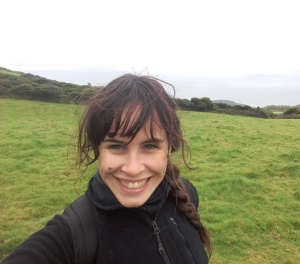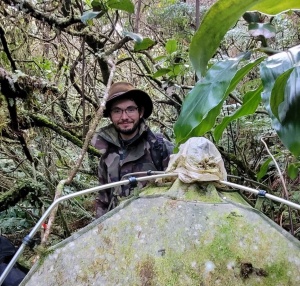Tsafack, N., Lhoumeau, S., Ros-Prieto, A., Navarro, L., Kocsis, T., Manso, S., Figueiredo, T., Ferreira, M.T. & Borges, P.A.V. (2023) Arthropod-based biotic integrity indices: a novel tool for evaluating the ecological condition of native forests in the Azores archipelago.
Ecological Indicators,
154, e110592. DOI:10.1016/j.ecolind.2023.110592 (IF2022 6,9; Q1 Environmental Sciences)
Island ecosystems are experiencing a significant decline in biodiversity, with forest biodiversity being particularly affected by several biodiversity erosion drivers. This alarming situation highlights the urgent need for conservation managers to develop more accurate and efficient tools to assess and monitor the quality status of sites. To address this issue, our study focuses on the development of two biological integrity indices (IBI) that utilize arthropod communities as indicators to measure the quality of forest sites. In accordance with studies that showed stratification of species diversity, we developed an IBI for canopy stratum (IBI-Canopy) and an IBI for an intermediate stratum targeting the forest understory (IBI-SLAM). We calibrated both indices on seven parameters for comparison purpose with a previous developed epigean IBI. Percentages of endemic, native non-endemic and introduced species richness and abundance were included in both indices. Percentages of Diplopoda species richness and abundance were included in IBI-Canopy and percentages of Saprophagous species richness and abundance were included in IBI-SLAM. As expected species richness and abundance of endemic species were negatively related to disturbance and selected for both IBI. Surprisingly, species richness and abundance of native non-endemic species were positively related to disturbance. The study highlights the limitations of single measurements in detecting all types of pressure sources, and proposes a multi-measurement system to provide a more comprehensive understanding of the overall system conditions. Our efficient and accessible indices confirmed low preservation status in Flores Island compared to Terceira and Pico, consistent with prior empirical studies. Our analyses also showed that canopy detect disturbance earlier than intermediate understory stratum. Our methodology has successfully been developed and tailored to the unique arthropod communities found in the Azores forests. While it may not be suitable for random forest sites, it can serve as a valuable source of inspiration for the development of arthropod-based IBIs in other islands of the world for which standardized endemic and exotic species richness and abundance could be obtained. The study also showed that arthropod assemblages mimicked forest biodiversity stratification and this is reflected in differences expressed by the IBIs.




